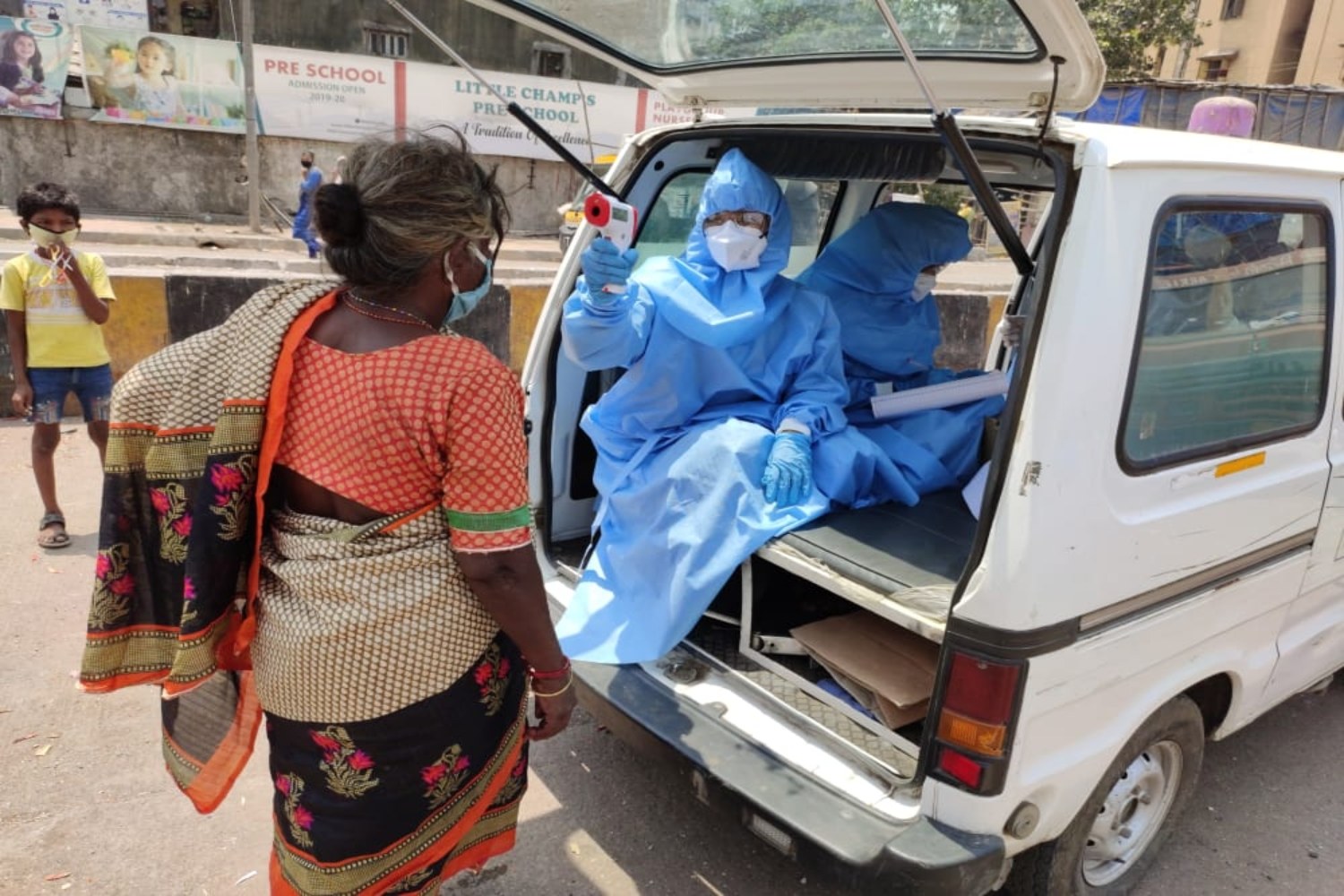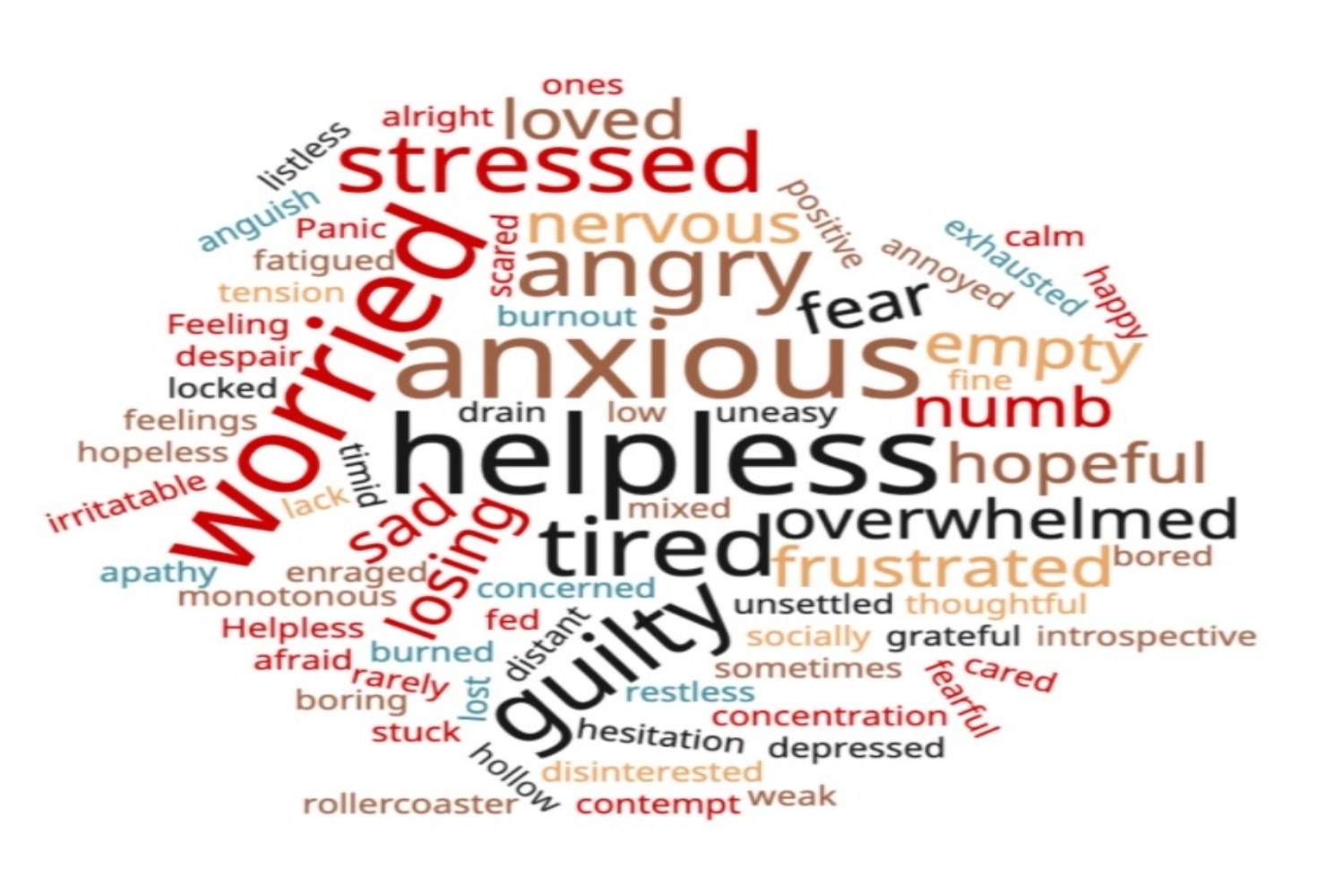Integrated response to the second wave
We are in the middle of the second wave of the COVID-19 pandemic in India. In this time of crisis, the current issue of Samuhik Pahal discusses the all-important issue of well-being.

Azim Premji Foundation and Wipro’s response to the COVID-19 second wave
Over the past few weeks, there has been a significant increase in COVID-19 cases across India, with around 300,000 cumulative deaths reported so far. The second wave outcomes are severe and call for stronger collaborations on public healthcare, bolstering emergency preparedness, and rapid vaccine delivery.
Working with more than 500 partner organizations across the country, we have significantly ramped up our efforts on the ground to address healthcare and humanitarian needs. On the healthcare front, our immediate focus is on reducing the mortality rate by enabling access to treatment and slowing down the rate of transmission through screening and awareness building.
On the humanitarian front, our focus is to mitigate the crisis by providing cooked meals, dry ration and hygiene kits as immediate support, and taking structured steps for livelihood regeneration over the next 2-12 months.
Last year in April, Wipro Ltd, Wipro Enterprises Ltd, and Azim Premji Foundation came together and committed Rs. 1125 crore towards tackling the COVID-19 crisis.
Delivering critical medical support and our mobilization efforts
Oxygen treatment
We are working on large-scale deployment of oxygen concentrators, setting up oxygen plants, and delivering solutions like oxygen cylinders and liquid oxygen storage. For instance, In Rajasthan, the commitment is to supply over 1700 Oxygen Concentrators in a staggered manner, across the 11 districts that we work in. The oxygen concentrators will be delivered to Primary Health Centres (PHC), Covid Care Centres (CCC), and facilities with capacity to treat more people.
Our partner organizations are facilitating timely access to medical oxygen in various States of India, such as Chhattisgarh, Jharkhand, Karnataka, Madhya Pradesh, Maharashtra, Rajasthan, Telangana and Uttarakhand and in the Union Territory of Puducherry.

ICU beds
The share of rural districts in new cases has increased from 37 per cent in March to 45.5 per cent in April and 48.5 per cent in May (first week). Rural areas and small towns now account for 89 per cent of new cases. There is an immediate need for better bed management practices in urban and rural regions to prioritize severe COVID-19 infected patients and provide them with timely treatment.
From April 2021 till now we have supported 5127 government hospitals and 422 nongovernment hospitals with oxygen beds as that emerged as the most critical need. Over the next few weeks, the goal is to deliver 800 ICU beds and support 10,000 beds with piped systems, large oxygen storage, etc., in regions that have been affected by the spike.
Testing, isolation, and basic care
Our partners have reached out to hospitals in urban and rural India with medical equipment like infrared thermometers, pulse oximeters, and High Flow Nasal Cannulas (HFNC). Testing equipment including RNA Extractors, RT PCR Machines, True NAT Machines, Biosafety Cabinets, and other equipment and instruments required in laboratories are also being procured and provided. To facilitate vaccination and testing, COVID call-centers and hospital helpdesks are being supported to assist patients with testing.
The second wave outcomes are severe and call for stronger collaborations on public healthcare, bolstering emergency preparedness, and rapid vaccine delivery.
Healthcare staff augmentation
There is a continued need to enhance COVID care capacity of hospitals in India. Our partners are supporting the augmentation of medical staff and frontline teams. For instance, in Delhi, our partners have mobilized doctors, nurses, and trained staff to operate a 120-oxygen bedded COVID Health Centre at Rouse Avenue School within 3 to 5 km radius of Lok Nayak Jai Prakash Narayan (LNJPN) Hospital for the next three months. In Hyderabad, the state government is being provided with support to augment critical care units by equipping TIMS – a multi-specialty hospital currently operating as a 1000-bedded COVID Hospital – with 50 HFNC, 50 multi-para monitors, 100 syringe pumps, and 10 ECG machines. Modern Architects for Rural India (MARI) and Rainbow Foundation of India are being provided support for healthcare response at the community level. Our partners are supporting ambulances for a limited period in Jaipur, Bangalore, Bhopal and Yadgir to enable better access to treatment facilities.
Community awareness, help desks, and frontline coordination
To slow down transmission, the focus is on strengthening frontline surveillance. This includes orienting, training, and adequately equipping frontline workers with pulse oximeters, thermal guns and other material for building mass awareness and doing better screening, especially in vulnerable communities. Better screening and early detection of conditions like low blood oxygen concentration (SpO2 ) will aid quicker access to treatment and reduce mortality.
As an example, in Bengaluru Urban and Rural, our partners are focusing on intensive frontline work in 250 settlements with awareness building through cable TV, bus advertising, wall paintings, etc., potentially reaching over 7.5 lakh people.
In cities like Pune, Kolhapur, Aurangabad, Solapur, Amravati, and Osmanabad, helpdesks and helplines are being supported to enable frontline coordination and to address complaints.
Technology support
Through the Global Coalition for COVID-19 Medical Care (GCCMC), we are bringing the medical fraternity and hospitals together on an online platform. Online knowledge sharing will help improve hospital throughput, and coalesce home and hospital care, resulting in better clinical outcomes. In partnership with Project StepOne, we are also supporting patients with timely access to information on COVID-19, connecting them to doctors and hospitals over the telephone. Many Wiproites are e-volunteering for this initiative, and have helped more than 10,000 patients so far.
Humanitarian aid
On the humanitarian front, the focus is to mitigate the crisis by providing cooked meals and dry ration/hygiene and taking structured steps for livelihood regeneration over the next 2-12 months. So far, our partner organizations have supported over 80,000 families in Chhattisgarh, Rajasthan, Karnataka, Uttarakhand, and in cities like Mumbai and Delhi.
In the rest of the country, our partner organizations have provided humanitarian support for dry rations in several districts. In collaboration with our partners, we have been working closely with the respective district administrations to provide healthcare and humanitarian support through the pandemic.
Since April 2021, We Have Initiated Procurement/Delivery/Set-up of:
- 50,000 oxygen concentrators
- 40 oxygen plants
- 800 ICU beds, and 10,000 ICU beds with piped oxygen
- 20,000 isolation beds
- 50,000 pulse oximeters
- Twelve testing equipment that can process 1000 tests per day
Our partners, who had worked on the frontline on creating awareness and on screening community members last year, are now undertaking awareness building and support during vaccination. Our partner network is facilitating more equitable access to vaccines at urban locations and rural communities.
Our COVID-19 response so far
Key highlights of our collective COVID-19 response, as of April 2021:
- 9.1 million people have been provided with food, dry rations, and personal hygiene kits
- 330 million meals distributed
- 200000 PPE kits and N95 masks distributed
- 6 million people being helped for livelihood regeneration
- 500+ nonprofit partners involved in delivering humanitarian and healthcare aid
- Of the 718 Districts in India, our humanitarian and healthcare efforts have reached 505 Districts across 29 States and 1 Union Territory.
- Over the last 12 months, more than 1561 projects have been supported covering humanitarian aid, healthcare support, and livelihoods regeneration.




No approved comments yet. Be the first to comment!